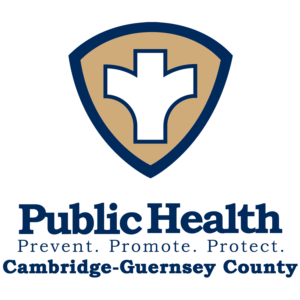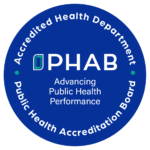Sanitarians Busy Keeping Us Healthy
Many people assume that sanitarians are the folks who collect the garbage every week, or make sure that public buildings are kept clean. While these jobs are a very important part of proper sanitation, a sanitarian is a person who is an expert in public health and sanitation.
Way back in 1955, a man named John Snow proposed the revolutionary idea that a Cholera epidemic occurring in London might be related to a contaminated well that people were drinking from. Authorities were reluctant to believe him until they put a lock on the well and the Cholera epidemic went away. Since that time, Snow’s idea that maintaining a healthy community can directly affect the incidence of disease, has become a founding principle of public health. Sanitarians are the modern-day John Snow’s- working to prevent us from getting sick because of our environment.
Today public health in an integral part of our lives, affecting things such as the water we drink, the food we eat, and the air we breathe. Environmental Sanitarians protect the public’s health by enforcing compliance with Federal, State, and local health laws. Through their work, sanitarians ensure our health and the health of our environment. You probably already have some idea of what an environmental sanitarian does, but you may call them “health inspectors.” Many of you have probably seen the movie Health Inspector starring Larry the Cable Guy. This movie was a humorous way of highlighting the food service inspection aspect of sanitarians. Most of the day-to-day inspections are obviously not always this dramatic. While food protection is one of the most well-known functions of an environmental sanitarian, there are many other equally important parts to the job.
Environmental public health sanitarians are involved not only in inspections, but perhaps more importantly in surveillance, warnings, permitting, risk assessment, risk communication, public information, exposure evaluation, epidemiology, sampling for analyses, education, consultation, community networking, problem prioritization, policy development, and marketing the values and benefits of environmental public health. The true day to day practice of environmental public health covers an extremely comprehensive and diverse set of services and activities. Let’s take a closer look at some of these services and activities to see if your health has ever been protected by the sanitarians at the Cambridge-Guernsey County Health Department.
Have you or someone you know of ever been bitten by an animal in Guernsey County? Many are not aware of this, but the Health Department Sanitarians investigate every reported animal bite to protect us against rabies infection. Animals that have bitten a human should not be destroyed, but should be quarantined (kept separate from other animals and people) for ten days to check for signs of rabies. The hospital, family doctor, police/sheriff, parent or victims notify the Health Department of the bite. Upon notification, a letter is sent to the owner of the animal and a sanitarian checks to see whether the animal develops any signs of rabies after the ten day quarantine period. It is the owner’s responsibility concerning quarantine and vaccination requirements. If the owner fails to quarantine or vaccinate the animal, the case is referred to for legal action.
Do you ever go out to eat in Guernsey County? Public health sanitarians help maintain sanitary standards by inspecting restaurants and businesses for cleanliness and proper food handling. The state of Ohio requires a minimum of one to four inspections per year (depending on type of license) to prevent food-borne illnesses and unsanitary conditions. Sanitarians also make sure that restaurants store and prepare the food properly and take time to educate the food service workers about food safety.
Have you ever been camping in this County? The health department and camp operators must abide by the Ohio Revised Code and the Ohio Administrative Code to ensure all camp grounds provide an environment for safe and outdoor recreational activities. The health department inspects the camps for insect and rodent control, solid waste management, proper sewage treatment facilities, safe water, and clean, maintained buildings and structures.
Do you know anyone who has built a new home in Guernsey County? Proper disposal of sewage is important to the environment… and to community health. Before buying a lot to build on, call the health department for a site evaluation for approval of the lot as not all lots are suitable for sewage disposal. Our sanitarian will consider the soil conditions (type of soil, depth of bedrock, and water table), the topography and slope of the lot and size of the lot in order to determine the best way to properly dispose of sewage.
Do you spend time outdoors in the county? The Health Department sanitarians larvicide mosquito problem areas every summer to control the population of disease spreading mosquitoes. Larvicides can be used to control mosquitoes in the aquatic stage before they become biting adults. This type of control using insecticides generally is the most effective in controlling mosquitoes and has the least effect on non-target species and the environment.
Do you know anyone who gets their water from a well, cistern, or spring in this county? Our public health sanitarians test private water systems for bacterial contamination. All new private water systems (wells, springs, cisterns, and ponds) are inspected and then tested for safe drinking water, Samples are also taken from existing water supplies where owners are concerned about water quality.
Do you ever swim in public pools in Guernsey County? The Health Department licenses and inspects public swimming pools and in Guernsey County to ensure safe and sanitary conditions at these facilities. Swimming pools are tested for chlorine and other disinfectant levels, pH, total alkalinity, Cyanuric Acid, water clarity, and other parameters. Facilities are also checked to make sure all equipment is operating properly, required safety equipment is present, life guards (if required) are certified and that there are enough guards on duty. Summer pools are usually checked weekly during the operating season. Indoor pools are checked less often, but throughout the entire year.
Did you or someone you know get a tattoo or body piercing in Guernsey County? You guessed it- the Health Department sanitarians also license tattoo and body piercing parlors and inspect them to be sure they are using sanitary procedures to protect you from disease.
Aside from the above mentioned services, the health department sanitarians also inspect many other areas regularly including spas, vending machines, refuse hauling firms, and septic tank cleaning companies. Our sanitarians also provide loan inspections for private water systems and septic inspections. Loan inspections are not required, but are highly recommended before purchasing a property.
The Environmental Health Division plumbing inspector also help maintain sanitary standards by inspecting commercial and residential homes for proper plumbing installation. All new homes or businesses constructed or remodeled in Guernsey County must meet strict state and local plumbing codes for installation requirements. Improperly installed plumbing can be the cause of many serious illnesses, so permits are required for all plumbing work beyond minor repair.
The Environmental Health Division of the Health Department is also responsible for investigating public health nuisances. These investigations are conducted to eliminate or reduce environmental conditions in the county that may adversely affect human health, safety, or well being. Examples of public health nuisances that are commonly dealt with are related to areas of trash and housing maintenance issues.
The sanitarians also work closely with Guernsey County Children Services and Adult Protective Services to investigate environmental health living conditions for those residents. The health department sanitarians also collaborate with the Guernsey County Emergency Management Agency and virtually every other response agency in the county regarding public health emergencies and bioterrorism preparedness and response.
So- as you can see, our sanitarians are busy keeping us healthy through a variety of services and activities all year long here in Guernsey County. If you live in Guernsey County or simply visit our area, you have been protected in one way or another by our sanitarians. Isn’t it reassuring to know that our heath is being protected even when we might not be aware of it? If you would like to speak with one of the Health Department sanitarians, please call the Health Department at 439-3577.


